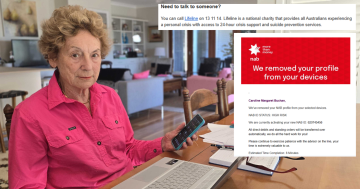 WA ScamNet has reported that more than 1,000 victims lost $14.8 million to scams last year.
WA ScamNet has reported that more than 1,000 victims lost $14.8 million to scams last year.
In its Year in Review 2021 Scam Report, WA ScamNet, which is run by Consumer Protection, revealed that the 1,041 victims represented an increase of 10 per cent from the previous year.
It said losses of $14,791,708 were an increase of 27 per cent and there were 4,128 scam reports received in total, an increase of 18 per cent.
“The greatest financial losses were recorded as result of investment cons ($6.67 million) mainly involving crypto-currency, and romance/dating scams ($2.99 million),” it said.
“In terms of the number of victims, online shopping and buying/selling classified scams topped the list.”
Commissioner for Consumer Protection, Gary Newcombe said the rise in scams reflected an increase in online trading, as well as the growing popularity of crypto-currencies like Bitcoin.
“As more and more consumers do business online, the risk of falling victim to scams increases as professional criminals become experts at hacking email accounts and creating fake websites, social media pages and classified ads,” Mr Newcombe said.
“There has been an avalanche of phony text messages and emails being sent to people which contain links to websites that seek to either steal money or gather personal and financial information, known as phishing, that can be used in identity theft,” he said.
Mr Newcombe said this was reflected in a 30 per cent increase in the number of phishing scams being reported and a five-fold increase in losses in this category.
“Malware or ransomware can also be installed on computers and mobile devices that give scammers access to a person’s email, social media and bank accounts,” he said.
“Scammers are quick to capitalise on popular products such as Bitcoin, knowing the attraction of get-rich-quick schemes that come with promises of large returns.”
The Commissioner said scammers were well organised and used sophisticated tactics to trick people into paying money or giving up personal information by threatening them or luring them with cheap prices or attractive winnings.
“Our general advice is for people to stop and think before sending anyone any money or providing information,” he said.
“Are you sure who you are dealing with is a legitimate person or business?” Mr Newcombe said.
WA ScamNet’s 10-page Report can be accessed at this PS News link.











